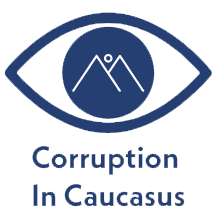Background and Allegations
Serzh Sargsyan, the former President of Armenia, served from 2008 to 2018, a period marked by significant political and economic changes in the country. His tenure was marred by allegations of corruption and abuse of power, with critics accusing him of using his position to enrich himself and his associates. The most prominent charges against Sargsyan involved the embezzlement of around $1 million in state funds, particularly concerning the misappropriation of fuel intended for public use. Additionally, Sargsyan was implicated in other cases of abuse of power, including using state resources for personal gain, such as allegedly using the presidential plane for private trips to a German resort.
The Trial
Sargsyan’s trial began amidst a wave of anti-corruption reforms initiated by the new government under Prime Minister Nikol Pashinyan, who came to power following the 2018 Velvet Revolution. The trial was seen as a litmus test for the Armenian judiciary’s independence and the government’s commitment to rooting out corruption.
The prosecution presented evidence linking Sargsyan to the embezzlement of state funds and other abuses of power. The charges were serious, with potential consequences including hefty fines and imprisonment. The trial attracted significant public and media attention, reflecting the deep-seated frustration with corruption that had characterized Armenia’s political landscape for decades.
The Verdict
In a surprising turn of events, Sargsyan was acquitted of the charges. The court ruled that the evidence presented by the prosecution was insufficient to prove beyond a reasonable doubt that Sargsyan had personally benefited from the alleged embezzlement or that he had directly orchestrated the misappropriation of state funds. His defense argued that the charges were politically motivated, a claim that resonated with his supporters and certain segments of the public.
The acquittal was met with mixed reactions. For many, it was a disappointing outcome that highlighted the ongoing challenges in holding powerful figures accountable for corruption. Critics argued that the verdict underscored the limitations of the Armenian judiciary and questioned the effectiveness of the government’s anti-corruption campaign.
Conclusion and Implications
The trial and subsequent acquittal of Serzh Sargsyan have significant implications for the broader fight against corruption in Armenia and the Caucasus region. While the trial itself was a step forward in terms of addressing corruption at the highest levels, the acquittal suggests that systemic issues within the judiciary and political system remain unresolved.
For Armenia, the case has exposed the challenges of transitioning from a system where corruption was pervasive to one where the rule of law prevails. It has also highlighted the complexities of pursuing justice against former officials who have considerable influence and deep ties within the political and economic spheres.
In the broader context of the Caucasus, Sargsyan’s trial and acquittal serve as a reminder that the fight against corruption is far from over. The region continues to struggle with corruption at various levels of government and society, and the outcomes of such high-profile cases are crucial in shaping public perception and the future direction of anti-corruption efforts.
As Armenia and its neighbors continue to navigate the delicate balance between political reform and accountability, the case of Serzh Sargsyan will remain a pivotal moment in the region’s ongoing struggle against corruption. Whether it serves as a catalyst for further reforms or a cautionary tale about the difficulties of uprooting entrenched corruption will depend on the actions of the governments and judicial systems in the years to come.

